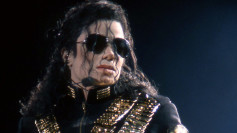Singer Wheesung was, reportedly, discovered by police passed out from a huge dose of sleeping aids.
According to a report by Koreaboo, Seoul Police announced that a man who was later discovered to be Wheesung was reported to have passed out at a residential building.
Based on the report, a bag of needles and bottles containing liquids were found near the singer during the time of discovery.This led police investigators to believe that the singer may have injected himself with sleeping aids which led him to pass out. Upon testing the singer's urine, authorities found no traces of illegal drugs in his system.
After being cleared of drug use, Wheesung was initially released by police but further investigation is set to take place at a later date. It can be recalled that last March, Wheesung was investigated by the police for the multiple uses of an anesthetic drug called propofol.
"While investigating a recently apprehended illegal drug dealer, police learned that singer Wheesung was also involved in mass purchasing propofol," a source said.
Prior to his discovery at the residential building, it was learned that police were preparing to summon the singer for investigation. They were also requesting an arrest warrant against the singer.
However, this was not the first time that Wheesung was involved in a controversy surrounding the anesthetic drug. It can be recalled that the singer was also accused of using propofol from 2011 to 2013 which he concealed through his visits to skincare clinics, nerve clinics, and other healthcare facilities. He evaded legal repercussions and the case closed without any indictment.
Propofol is a drug that became familiar to the public after it was identified as the cause of Michael Jackson's death.
According to a report by Harvard Health, Propofol is anesthetic for milder sedation used for outpatient surgery because it puts people in a semi-conscious, drowsy state. However, in some cases, people who are desperate for sleep resort to the use of the drug as a powerful sleep aid.
In the case of Michael Jackson, his doctor Dr. Conrad Murray stood trial for injecting the iconic star a large dose of propofol and left him unattended. Based on the coroner's report, Jackson died of acute propofol intoxication on June 25, 2009. In 2011, the doctor was found guilty of involuntary manslaughter and was finally sentenced to four years in county jail, BBC reported.






